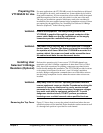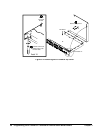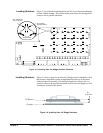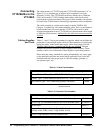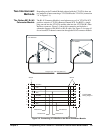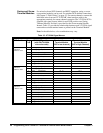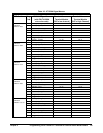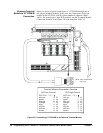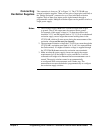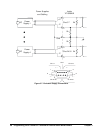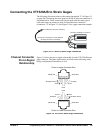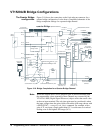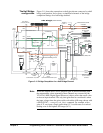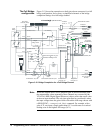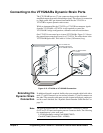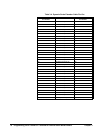
Programming the VT1422A & VT1529A/B for Remote Strain Measurement 67Chapter 3
Connecting
Excitation Supplies
This connection is shown as "B" in Figure 3-1. The VT1529A/B uses
external excitation supplies. There are four pairs of input pins (and Gnd) at
the "Bridge Excitation" connector for up to four individual excitation
supplies. Each of these four inputs power eight channels through a
programmable switch. Multiple excitation inputs can be parallel-wired to a
single power supply.
Notes 1. The excitation supply must have a balanced output with respect
to ground. That is, the output must be centered about ground.
For example, if the supply voltage is 5 V, then the positive lead
should be +2.5 V and the negative lead at -2.5 V. Use of an unbalanced
excitation supply causes longer than normal settling times in the
VT1529A/B, which will cause errors during the measurement of the
excitation voltage and the next few channels.
2. The maximum excitation voltage the VT1422A can sense through the
VT1529A/B’s excitation sense path is 16 V (±8 V dc centered about
the Gnd terminal). If a higher excitation voltage is supplied through
the VT1529A/B, do not connect the excitation sense terminals.
3. Make sure that the power supply chosen can supply the current
requirement of all of the bridges it can be switched to. It will be
connected to all bridges to be measured before a measurement scan is
started. The supply switches cannot be programmatically
re-configured while a measurement scan is under way. The
measurement scan must be halted to programmatically re-configure
the excitation supply switches.



